- Home
- James Rollins
Ice Hunt Page 22
Ice Hunt Read online
Page 22
With folks unaccounted for, Bratt had felt compelled to stay behind, but he had been surprised when Lieutenant Washburn had insisted on joining him. The station had been under her guardianship. She wasn’t about to abandon it until every damn one of her charges was cleared out of here.
As they continued deeper, Bratt appraised his partner. Washburn was actually a couple of inches taller than him, tall for a woman, but lean and muscular. She looked like a track runner. Her hair was worn in a crew cut, giving her a stark look that somehow didn’t lessen her femininity. Her skin was smooth coffee, her eyes large and deep. But for the moment, she was all business.
And so was he. He switched his focus to the ice tunnels. He had a mission: find any civilian strays and keep them safe.
Lifting the bullhorn to his lips, he squeezed the trigger. His words blasted from the horn, echoing down the tunnels. “This is Lieutenant Commander Bratt! If anyone can hear this, please sound off!”
He lowered the bullhorn. His ears rang. It took a moment for him to be able to listen for any response. He expected no answer. They had been searching and shouting for a half hour without even a whisper of a response. So when someone finally did call out, he wasn’t sure if it was real or not.
Washburn glanced back to him, one eyebrow cocked.
Then the shout repeated, faint, but ringing clear through the ice tunnels: “Over here!”
It came from ahead of them.
Together, they hurried forward. Bratt shrugged his rifle higher on his shoulder. His field jacket and parka were heavy with ammunition, gleaned from his own men as they evacuated back to the sub. Washburn was similarly loaded down, but she sped ahead of him.
The tunnel emptied into a large ice cavern, full of idling generators, lamp poles, and equipment. The air here was noticeably warmer, humid. The back half of the cavern was a wall of pocked volcanic rock.
“Christ,” he swore under his breath.
A short, bald man, bundled in an unzippered parka, came slipping across the ice lake that floored the room. It was one of the base scientists. He was flanked by two younger men.
“Dr. Ogden?” Washburn said, identifying the lead man. “What are you still doing here? Didn’t you hear the call to evacuate?”
“Yes, yes,” he said as he reached them, out of breath, “but my work has nothing to do with politics. This is science. I don’t care who controls the station as long as my specimens are protected. Danger or not, I could not leave them. Especially at this critical juncture. The thawing is near completion.”
“Specimens?” Bratt asked. “Thawing? What the hell are you talking about?”
“They must be protected,” the scientist insisted. “You have to understand. I could not risk the data’s corruption.”
Bratt noted the shifting feet and wringing hands of the man’s younger associates—postgrads by the look of them. They were not so convinced.
“You have to see!” Dr. Ogden said. “We’re picking up EEG activity!” He hurried back the way he had come, back to the volcanic cliff face.
Washburn followed. “Is Dr. Reynolds here, too?”
Bratt dogged after them to hear the answer. If all the missing personnel were here…
But the doctor’s response dashed such hopes. “Amanda? No, I don’t know where she is.” He glanced back, eyebrows tucked together. “Why?”
“She’s here somewhere,” Washburn answered. “Supposedly off with Dr. MacFerran, looking for a missing colleague.”
Ogden rubbed at his frozen mustache. “I don’t know anything about it. I’ve been here all night with the biology team.”
As they reached the wall, Bratt noted water splashing underfoot, flowing from a crevice in the cliff face. The biologist led the way into the cavern. But after a few steps, a new form came splashing from deeper inside, running headlong into them.
It was another student, a young woman in her early twenties. Bratt caught her as she slipped in her panic. How many fools were down here still?
“Professor! S-something’s happening!” she stammered.
“What?”
She pointed back down the cleft. She tried to speak, but her eyes were wild.
Ogden fled forward. “Is something wrong?”
They all followed after him. In another ten steps, the way opened into a space the size of a two-car garage. It was a bubble in the rock. More lamp poles glowed. Equipment was stacked all around.
Bratt gasped at both the sight and the smell. He had worked one summer at a fish plant in Monterey. The heat, the reek of rotting fish guts, the stench of blood. It was the same here—but it was not fish that caused this smell.
Rolled to one side was the flayed and gutted body of some pale white creature. It looked like it might be a beluga whale, but this thing had legs. This creature was not the only one here. Another six specimens, fresher and intact, lay curled on the floor. Crusts and chunks of ice still clung to their pale flesh. Two had colored leads taped to their forms, running to machines with video screens. Small sine waves flowed across the tiny monitors.
Ogden searched around the room. “I don’t understand.” He turned to the panicked postgrad student. “What’s the matter?”
She pointed to one of the curled specimens, the one closest to its gutted brethren. “It…it moved…”
Ogden scowled at her and waved a dismissive hand. “Preposterous. It’s just the shadows in here. One of the light poles simply shifted.”
The girl hugged her arms around her chest. She didn’t look convinced. This was one seriously spooked girl.
Ogden turned back to Bratt and Washburn. “It’s the EEG readings. It’s disturbed some of our less experienced team members.”
“EEG? Like brain waves?” Bratt asked, staring over to the run of electronic waves across the monitoring screen.
“Yes,” Ogden said. “We’ve recorded some activity from the thawing specimens.”
“You’re kidding. These things are alive?”
“No, of course not. They’re fifty thousand years old. But such a phenomenon is seen sometimes when living specimens are frozen rapidly, then warmed again slowly. Though the subject is dead, the chemicals in the brain begin to thaw and flow. And chemistry is chemistry. Certain neurochemical functions will begin anew. But over time, without circulation, the effect fades away. That’s why it was so important that I stay and collect the data before it disappears. We’re looking at activity that hasn’t been seen in fifty thousand years!”
“Whatever,” Bratt said. “As long as these things stay dead.”
As if hearing him, one of the bodies spasmed. A tail lashed out of its curled position and struck a light pole, sending it crashing.
Everyone jumped back—except Dr. Ogden, who stared in disbelief.
The body unrolled further, twisting in savage S-curves. Then it began to flop and jerk on the floor like a hooked marlin. Violent tremors flowed through its frame in waves of convulsions.
The biologist stepped closer, one arm stretching out in amazement, as if he needed to touch it to make it real. “It’s reviving.”
“Doctor…” Bratt warned.
The beast flopped toward Ogden. Its maw split wide, revealing a shark’s jagged dentition. It snapped blindly at the biologist, coming within inches of his fingers. Ogden danced back, cradling his hand as if it had actually been bitten.
Bratt had had enough. He reached forward and yanked Ogden back, then shoved everyone behind him, rifle appearing in his hands.
The doctor stumbled next to him. “It’s amazing!”
Bratt opened his mouth, but he felt a sharp buzzing behind his ears. His jaw vibrated like a tuning fork. It was a familiar feeling. Working on a sub, he had been exposed to intense sonar. He knew what he was feeling.
Others felt it, too, rubbing at their ears.
Ultrasonics…
“Look!” one of the students said, pointing to the EEG machines.
Bratt glanced over. The slow sine waves were now spiking an
d racing. The two specimens attached to the lead were now beginning to tremble. Another tail whipped from its frozen curl.
They all fled to the crevice opening.
“I can’t believe it,” Ogden said, digging one finger in an ear. “I think the first beast is calling to the others.”
“With sonar,” Bratt said, jaw buzzing.
“Early whale song,” the biologist corrected. “The Ambulocetus is a progenitor of the modern cetacean species. The ultrasonics must act as a biological trigger, waking others of its pod. Perhaps even calling others to it. A defense mechanism. The better to protect each another.”
The thrashings spread. Equipment crashed. The ultrasonic keening grew worse.
Off to the side, the first creature lay panting, gulping air through its gaped jaws. It then rolled to its belly, unstable, shaking, cold.
“Someone shoot the damn things!” the girl urged in a high-pitched voice.
Bratt hefted his weapon up.
The biologist stared from the gun to the wobbly creature. “Are you crazy? This is the discovery of the century…and you want to kill it? We need to protect them!”
Bratt kept his tone civil but firm. “Sir, this ain’t no Free Willy situation going on here. Right now, I’m more worried about protecting us.” He grabbed the smaller doctor by the elbow and shoved him down the cleft. “And in case you hadn’t noticed, these things look more like great whites, than plankton-munching humpbacks. I think they can protect themselves just fine.”
Ogden began to protest, but Bratt turned away and faced Washburn. “Move ’em out, Lieutenant.”
She nodded, one eye on the thrashing monsters.
Bratt herded everyone behind him as they retreated. Once clear of the cliff, they hurried across the ice lake.
“The Russians must have known about this,” Odgen droned. “It must be why they are trying to commandeer the station. They want the glory for themselves.”
Bratt knew the doctor was wrong. He was one of the few who knew what lay hidden within the lab on Level Four. It was not glory the Russians sought, but silence and cover-up.
As they reached the far side, Washburn shouted from a few steps back. “Commander! We’ve got company!”
He swung around.
From the cleft in the cliff face, one of the creatures slid out onto the ice. Another followed it…then another…
They wobbled on their feet, shaky but determined. And after fifty thousand years, they were probably damn hungry, too.
“They’re waking up fast,” Ogden said, respect clear in his voice.
Bratt waved toward the exit. “Out!” he yelled. “Everyone get moving!”
Across the ice lake, three heads swiveled toward the sound of his voice. He again felt the buzzing surge sweep over him. The goddamn things were pinging him with their sonar.
“Shit,” he swore, raising his rifle as he retreated. They were being hunted!
Two more creatures slipped from the cliff.
“Washburn, get everyone moving down the tunnel. Now! You know the way. I’ll keep any of these beasties from getting too close.”
He lifted his rifle.
“Don’t!” Ogden begged.
“Professor, this time it ain’t up for debate.”
11:58 A.M.
OUT ON THE ICE…
Matt’s spine felt like jelly. For well over an hour, the driver of the Sno-Cat, a petty officer named Frank O’Donnell, had been racing the treaded vehicle at top speed, oblivious to the rough terrain. It was like riding a paint shaker. Every bone in his body felt rattled and bruised.
He stared out at the blowing snow. Winds battered the vehicle. He had long given up any hope of dissuading the Navy men from their goal of reaching the Russian ice station. His only concession was that the driver had tried to raise the other Sno-Cat every five minutes.
Nobody answered.
They had also tried to raise someone at the base on the short band, but their luck wasn’t any better there. It was as if they were alone out here.
Matt’s fear for Jenny had developed into a grapefruit-sized stone in his gut. He found it hard to concentrate on his own situation.
“There’s the station!” O’Donnell called back to them, and pointed straight ahead. Relief cheered his voice. “Looks like they left the goddamn light on at least.”
Matt leaned forward, glad for the distraction from his worries. Craig glanced to him, eyes bright.
Ahead, a wall of ice rose in mountainous pressure ridges. Snow blasted horizontally across the landscape, obscuring any details. But near the base of one peak, a glow cut through the midday gloom.
“I don’t see any station,” Craig said.
“It’s all underground,” the driver explained “The entire facility.”
The Sno-Cat aimed for the glowing beacon, bouncing over ridged ice. Matt spotted other vehicles, half covered in snow, sheltered in ravines between ridges. There was even a sailboat anchored with its sails snugged down. The Cat passed them all, continuing straight for the glowing opening.
“Fuck!” Lieutenant Greer’s outburst startled everyone.
Eyes turned to where he had his face pressed to the side window. Out in the blizzard, Matt saw something impossible. Crashing through the ice, a submarine conning tower climbed from the depths, steaming and sluicing water.
“The Russians!” Pearlson hissed. “They beat us here!”
Matt noted the polynya through which the submarine surfaced. It was small, too small for the large Russian sub. Little room for more than the conning tower.
“What are we going to do?” Matt asked.
“I’m almost out of gas,” O’Donnell said.
Greer was senior officer here. He didn’t hesitate, thinking quickly. “Make for the station!”
Matt nodded, silently agreeing. They needed cover. It was death to stay out here. Surely the submarine’s hydrophones had heard their Cat trundling over the ice. The Russians would know they were here.
O’Donnell kicked the slowing Sno-Cat back up to full speed. Matt bounced to the ceiling as the vehicle struck a particularly sharp ridge.
“Hang on!” O’Donnell yelled.
Matt rubbed his head and sat back. Now he tells me.
Greer clutched the seat back in front of him. “O’Donnell…”
“I see them, sir!”
Matt glanced over to the sub. Men in white parkas climbed to the top of the sub’s flying bridge. Arms pointed toward them.
The Sno-Cat made a sharp turn, racing toward the base’s opening.
“Slow down!” Craig yelled from the front seat, arms braced against the dashboard.
Matt’s eyes widened as he realized what the driver intended. “You’ve got to be kidding…”
O’Donnell jammed the Sno-Cat forward. It flew straight at the tunnel.
Gunfire suddenly erupted. Slugs tore into the back end of the Cat, sounding as if someone had tossed a flaming bundle of firecrackers into their trunk. The noise deafened. Glass shattered out of the rear window.
Matt might have shouted, but it was hard to tell.
Then the Cat hit the tunnel.
O’Donnell downshifted and slammed the brakes hard. But the Cat’s momentum was unimpressed by his efforts. It shot down the stairs, rear end flying high, bouncing off the ice ceiling. The back of the cabin crumpled under the collision—then the Cat rebounded to the stairs with a squeal of treads.
The passengers became a tangle of flailing limbs. More glass showered upon them.
Matt caught a glimpse of steel doors in the headlamps ahead.
Then they struck with an impact that slammed everyone forward. Matt flew over the front seat, striking the windshield with his shoulder. The window popped from its frame. He rolled out onto the hood, half draped in safety glass. He slid all the way to the floor beyond, landing in a graceless heap in front.
At least they had stopped.
“Are you all right?” Craig asked as Matt pushed to his feet. The rep
orter leaned forward out the cab. His scalp injury had reopened. Blood trailed over his face.
“Better than you,” Matt answered, testing his limbs to make sure he wasn’t lying.
O’Donnell groaned, cradling his side. He must have hit the steering wheel hard, bruising some ribs. In the backseat, Greer and Pearlson were already up, staring out the shattered back window, watching for the Russians.
Matt surveyed the state of their transportation. The Sno-Cat was jammed in the doorway, a plug in a storm drain. “Nothing like door-to-door service.”
“Everybody out!” Greer ordered from the backseat, retrieving his weapon from the floor. He pointed toward Matt and the station.
The doors were pinned by the station’s frame, but with the windshield gone, they had a ready-made exit. Matt helped them clamber over the hood.
“Move deeper down!” Greer yelled as he climbed through last, waving them ahead. “The Sno-Cat’s wreckage will slow the Russians, but who knows for how long.”
As a group, they hurried down the passage. Greer caught up with Matt. He shoved a 9mm Beretta pistol at him. “Do you know how to use this?”
“I served in the Green Berets.”
Greer glanced harder at him, judging him anew, then slapped the gun into his hand. “Good, then you won’t shoot your goddamn foot off.”
Matt hefted the weapon. “Not unless it would get me out of this mess.”
Within a few more yards, the entrance tunnel emptied into a large circular space with rooms opening off it. Tables and chairs were spread around a central staircase. Half-eaten meals dotted some of the table-tops. They searched the space as they crossed it, weapons ready.
It was empty.
“Where is everyone?” Matt asked.
Running, Greer led them down the stairs. The second level was just as empty.
“They’re gone,” Pearlson said, shocked.
“Evacuated,” Greer corrected. “The Polar Sentinel must have gotten wind of the attack and come directly here. Cleared the base.”
“Great,” Matt said. “We came all the way out here to warn them, and they’ve already rolled up shop.”
“What are we going to do?” Craig asked, half his face bloody, the other half ashen.

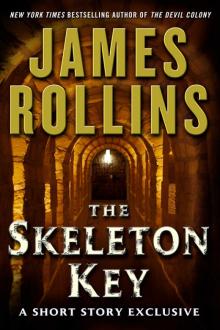 The Skeleton Key
The Skeleton Key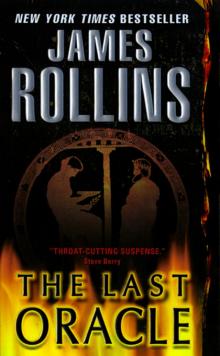 The Last Oracle
The Last Oracle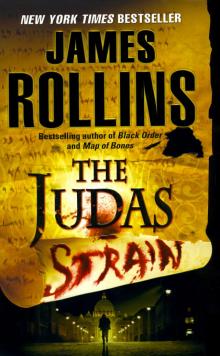 The Judas Strain
The Judas Strain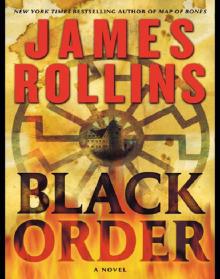 Black Order
Black Order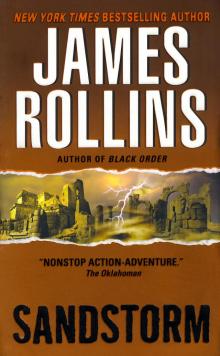 Sandstorm
Sandstorm Ghost Ship
Ghost Ship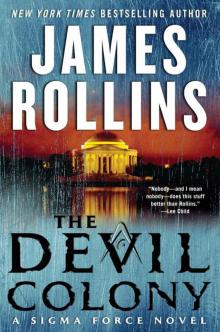 The Devil Colony
The Devil Colony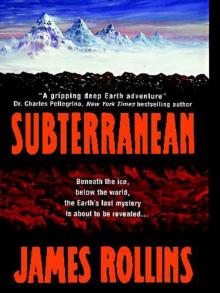 Subterranean
Subterranean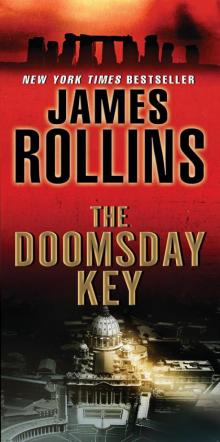 The Doomsday Key
The Doomsday Key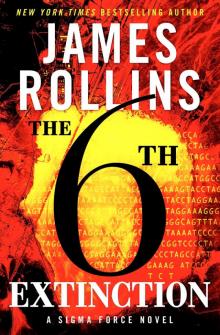 The 6th Extinction
The 6th Extinction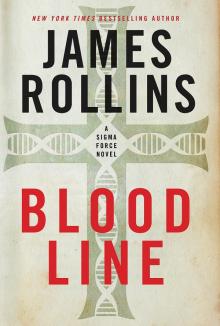 Bloodline
Bloodline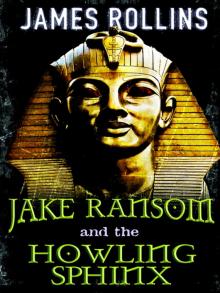 Jake Ransom and the Howling Sphinx
Jake Ransom and the Howling Sphinx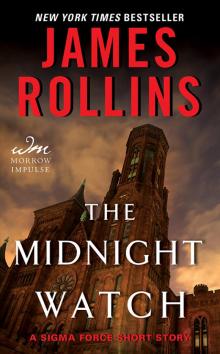 The Midnight Watch
The Midnight Watch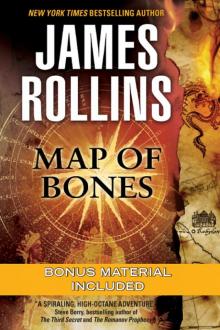 Map of Bones
Map of Bones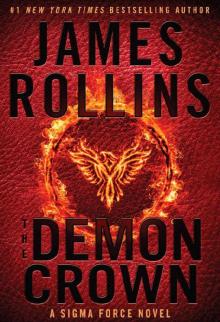 The Demon Crown
The Demon Crown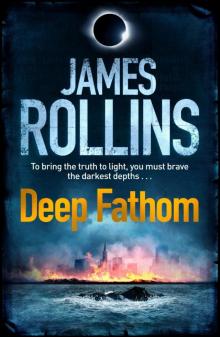 Deep Fathom
Deep Fathom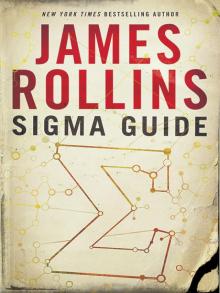 Sigma Guide
Sigma Guide Kowalski's in Love
Kowalski's in Love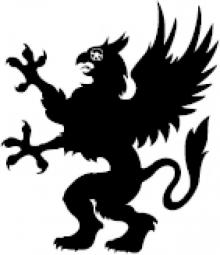 Jake Ransom and the Skull King's Shadow
Jake Ransom and the Skull King's Shadow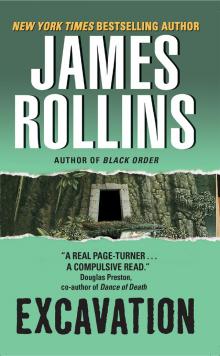 Excavation
Excavation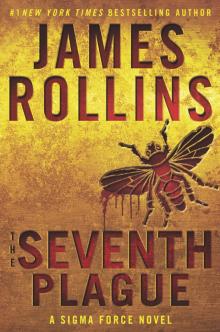 The Seventh Plague
The Seventh Plague Altar of Eden
Altar of Eden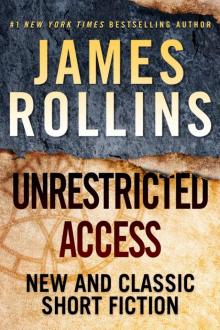 Unrestricted Access: New and Classic Short Fiction
Unrestricted Access: New and Classic Short Fiction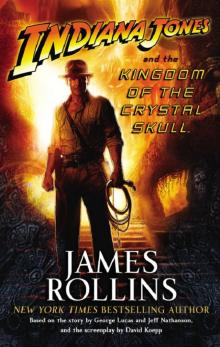 Indiana Jones and the Kingdom of the Crystal Skull
Indiana Jones and the Kingdom of the Crystal Skull Crucible
Crucible The Eye of God
The Eye of God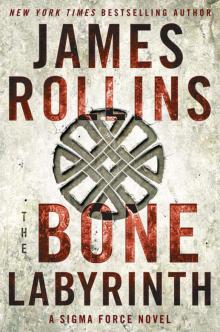 The Bone Labyrinth
The Bone Labyrinth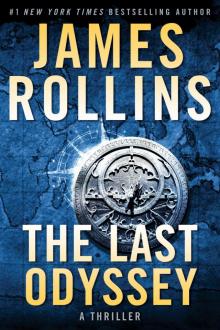 The Last Odyssey: A Thriller
The Last Odyssey: A Thriller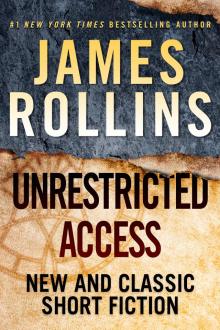 Unrestricted Access
Unrestricted Access Amazonia
Amazonia Blood Brothers: A Short Story Exclusive
Blood Brothers: A Short Story Exclusive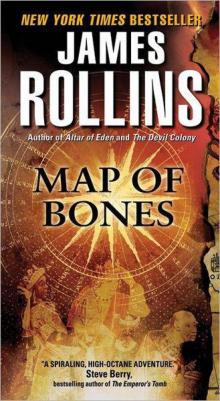 Map of Bones: A Sigma Force Novel
Map of Bones: A Sigma Force Novel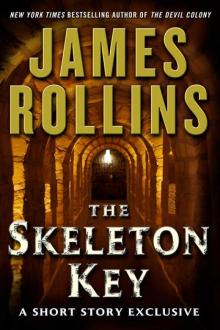 The Skeleton Key (sigma force)
The Skeleton Key (sigma force)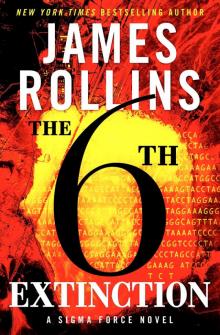 Sigma Force 10 - The Sixth Extinction
Sigma Force 10 - The Sixth Extinction Innocent Blood
Innocent Blood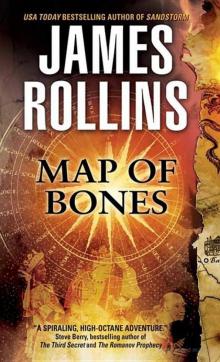 Map of Bones sf-2
Map of Bones sf-2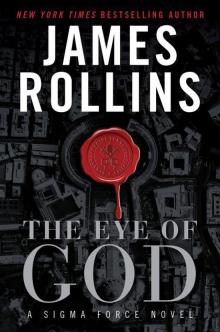 The Eye of God: A Sigma Force Novel
The Eye of God: A Sigma Force Novel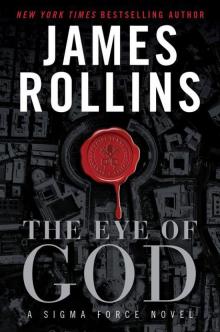 The Eye of God: A Sigma Force Novel sf-9
The Eye of God: A Sigma Force Novel sf-9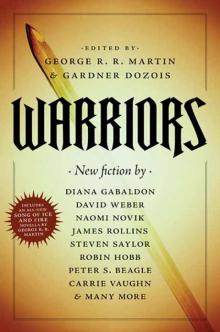 The Pit
The Pit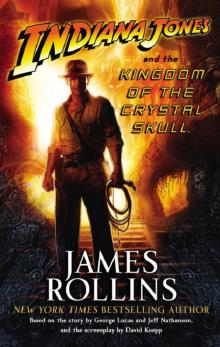 Indiana Jones and the The Kingdom Of The Crystal Skull
Indiana Jones and the The Kingdom Of The Crystal Skull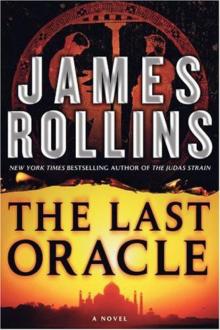 The Last Oracle (2008) sf-5
The Last Oracle (2008) sf-5 City of Screams
City of Screams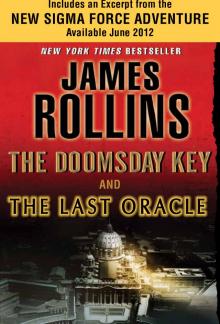 The Doomsday Key and The Last Oracle with Bonus Excerpts
The Doomsday Key and The Last Oracle with Bonus Excerpts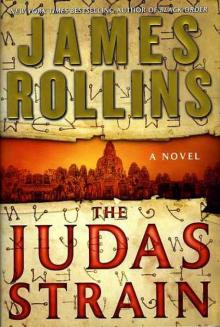 The Judas Strain sf-4
The Judas Strain sf-4 Blood Infernal
Blood Infernal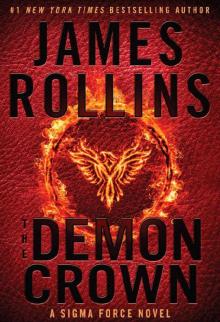 The Demon Crown: A Sigma Force Novel
The Demon Crown: A Sigma Force Novel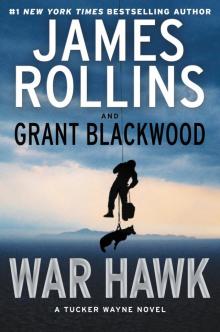 War Hawk: A Tucker Wayne Novel
War Hawk: A Tucker Wayne Novel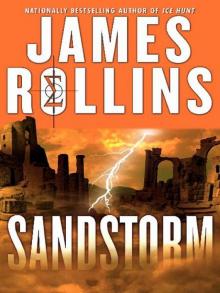 SANDSTORM sf-1
SANDSTORM sf-1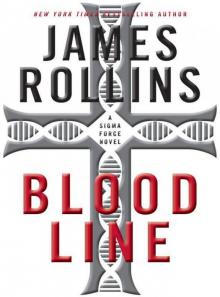 Bloodline: A Sigma Force Novel
Bloodline: A Sigma Force Novel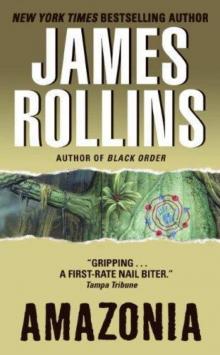 Amazonia: a novel
Amazonia: a novel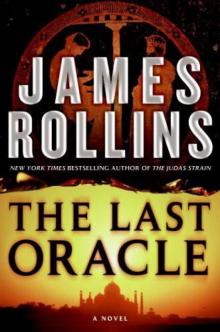 The Last Oracle: A Sigma Force Novel
The Last Oracle: A Sigma Force Novel City of Screams (the order of the sanguines)
City of Screams (the order of the sanguines)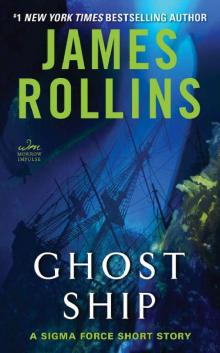 Ghost Ship: A Sigma Force Short Story
Ghost Ship: A Sigma Force Short Story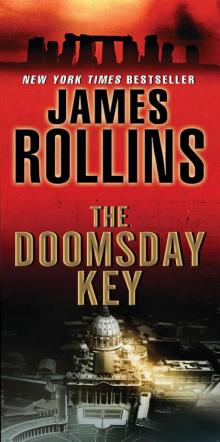 The Doomsday Key: A Sigma Force Novel
The Doomsday Key: A Sigma Force Novel